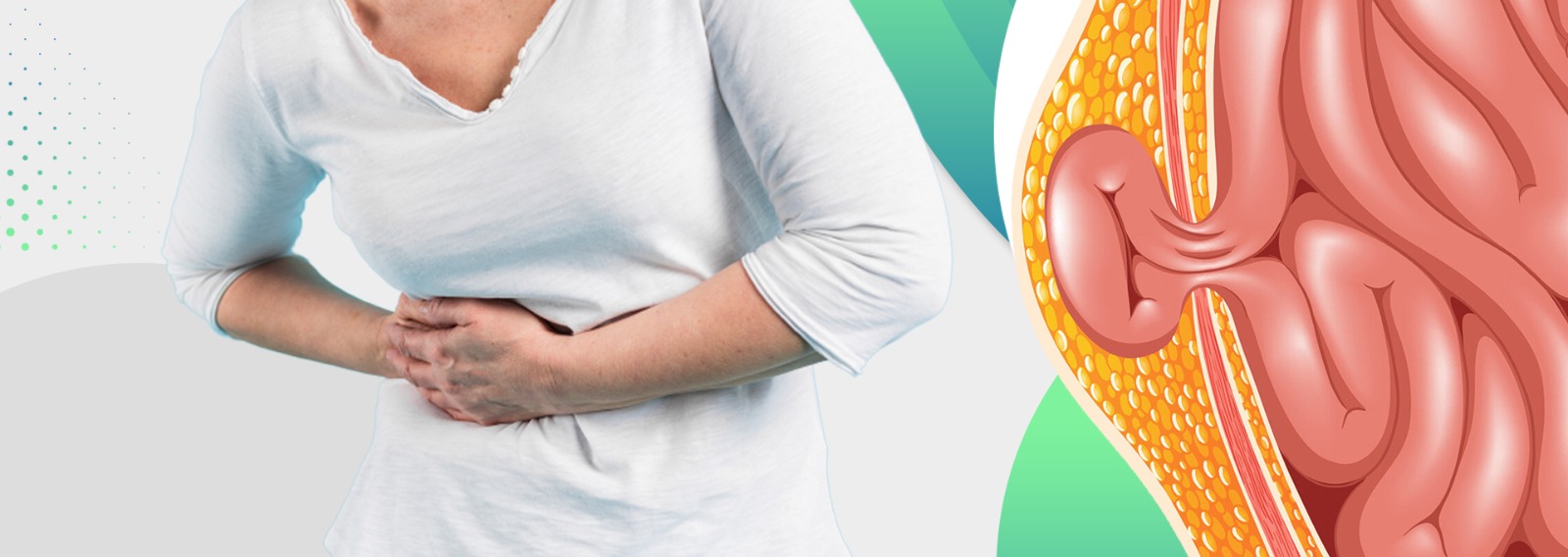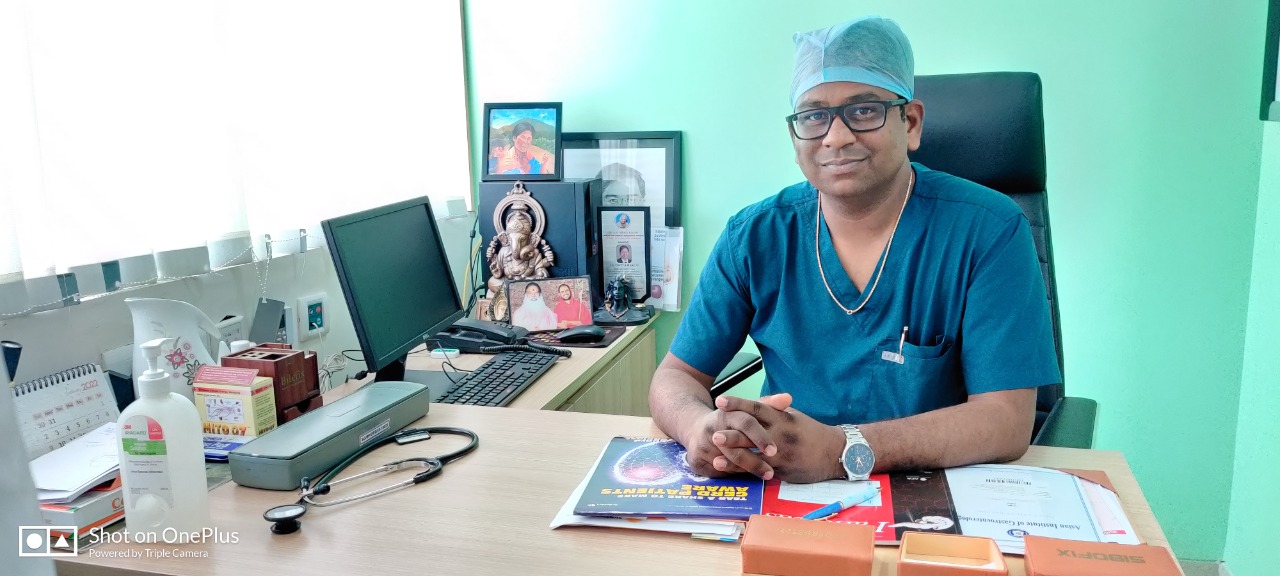
Best Hernia Specialists
in Hyderabad
Expert Hernia Surgeon with his experienced team provides the most advanced care for all types of hernias
- More than 18 years of experience
- An expert Laparoscopic hernia surgeon
Dr. Datta Ram U is one of the best hernia specialists in Hyderabad. As a famous hernia surgeon in Hyderabad, Dr. Datta Ram has successfully performed thousands of hernia surgeries. Dr. Datta Ram U is an expert surgical gastroenterologist and experienced laparoscopic surgeon with immense experience in advanced laparoscopic hernia surgery. He performs laparoscopic hernia surgery for different types of hernias - such as umbilical hernia, inguinal hernia, incisional hernia, femoral hernia, diaphragmatic and hiatal hernias.
Table of Content
- What is a hernia?
- Why does a hernia occur?
- What are the symptoms?
- What are the complications?
- Is there any medical treatment?
- Is surgery the only treatment?
- How long can we wait before hernia surgery?
- How is the surgery performed?
- What is the post operative recovery after surgery?
- When can I go to office after surgery?
- Is a Mesh helpful for a Hernia surgery? How does a Mesh help?
- What is a Mesh made up of?
- What tests are done before a Hernia Repair surgery?
What is a hernia?
Hernia is protrusion of abdominal contents through the defect in the abdominal wall.
Why does a hernia occur?
Hernia occurs due to a defect in the abdominal wall, the defect may be a congenital or acquired. There are some potential sites where hernias can occur, like the umbilicus where the abdominal wall is too thin and the groin (the region between the thigh and the abdomen).
Hernias occur after previous abdominal surgery where the tissues do not heal well and form aa defect, such hernias are called Incisional or Ventral hernias.
What are the symptoms?
- A bulge in the abdomen which gets bigger on coughing or straining is the most common symptom. The bulge often decreases on lying down and becomes prominent on standing.
- Pain, often dragging kind of abdominal pain.
- When it is a complicated case, one may get severe abdominal pain.
What are the complications?
A hernia is prone to complications. The most dreadful complication so a hernia is strangulation, the contents get stuck in the defect, often when the patient strains to raise the abdominal pressure, like while coughing, lifting a heavy object or while passing stools.
When the contents get stuck in the defect (which is unyielding), the intestines get obstructed (Intestinal obstruction), patient develops vomiting and abdominal distension. The blood supply to the herniating contents gets cut off and the contents undergo gangrene (necrotic death of tissues), this is called strangulation of a hernia. This is a serious and a life-threatening complication. That is the reason why a hernia is best treated in a planned manner.
Is there any medical treatment?
Hernia is a structural problem, there is no medical treatment.
Is surgery the only treatment?
Yes, surgery is the only treatment for a Hernia as Hernia is a structural and anatomical problem.
How long can we wait before hernia surgery?
One cannot wait indefinitely before a Hernia surgery. A Hernia is best treated in a planned manner, where in, you consult your surgeon and get tests done and get operated on a pre-planned date. Hernias are prone to complications and it’s difficult to predict when a hernia gets complicated. Hence, a planned surgery is much better than an emergency surgery for a complicated Hernia.
How is the surgery performed?
Surgery is performed by the conventional Open surgery or the Laparoscopic surgery (Minimally invasive method).
The conventional open technique involves making a cut over the hernia and repairing it.
The Laparoscopic method is also known as the minimally invasive method, where the cuts made are very small. The advantages of Laparoscopic surgery are:
- Less or minimal pain
- Small wounds, so less wound related complications
- Imperceptible scars, very tiny and aesthetic looking scars
- Cosmetically pleasing
- Early recovery after surgery
- Short hospital stays
What is the post operative recovery after surgery?
- After the surgery, you are allowed to walk on the same day of surgery.
- You will be discharged from the hospital in a day or two after surgery.
- You will be able to resume your daily routine and house hold works by a week. You can resume your office once the wound has healed and the sutures are removed.
- Strenuous physical activities like sports, jumping or going to the gym are allowed 6-8 weeks after surgery.
When can I go to office after surgery?
You can resume your work/office once the pain is tolerable and the wound has healed.
Is a Mesh helpful for a Hernia surgery? How does a Mesh help?
Yes, using a Mesh for hernia repair is an integral part of Hernia repair. The mesh acts as a scaffold on which strong tissue forms and strengthens the repair and this significantly reduces the chances of Hernia recurrence.
What is a Mesh made up of?
The mesh is made up of a polymer, generally polyester or Poly propylene.
What tests are done before a Hernia Repair surgery?
An Ultrasound of abdomen and in some cases a CT scan of the abdomen are performed to assess, the size and defect of the hernia, the location of the hernia, the space inside the abdomen (abdominal domain) and so on.







